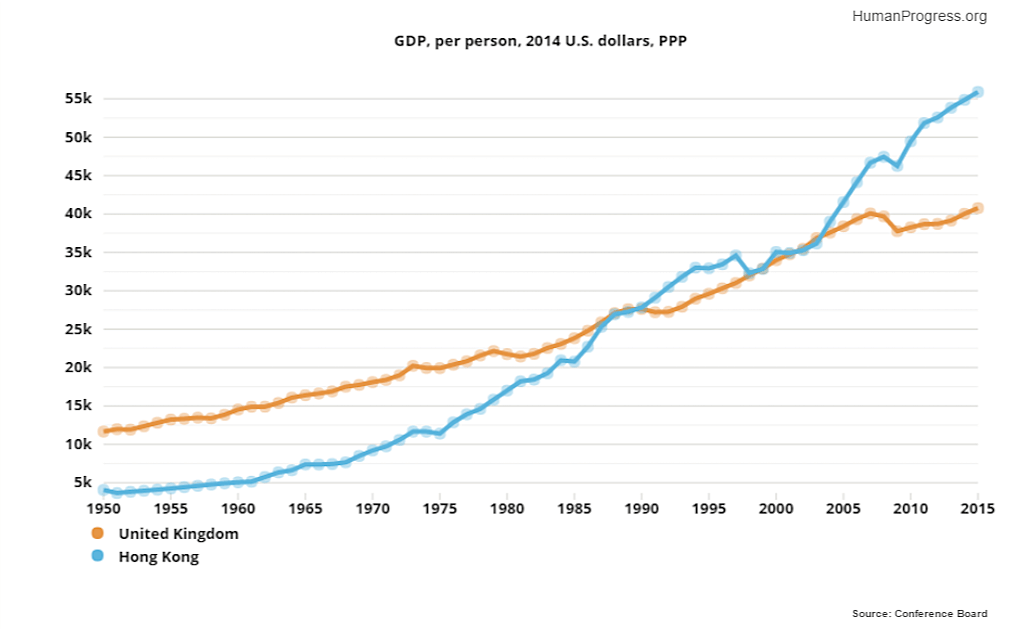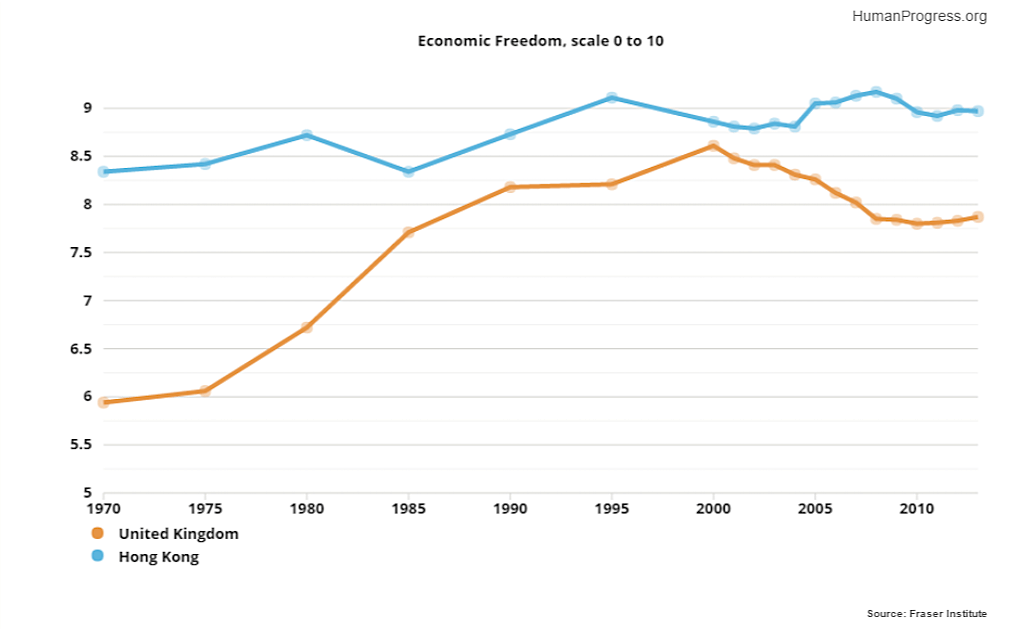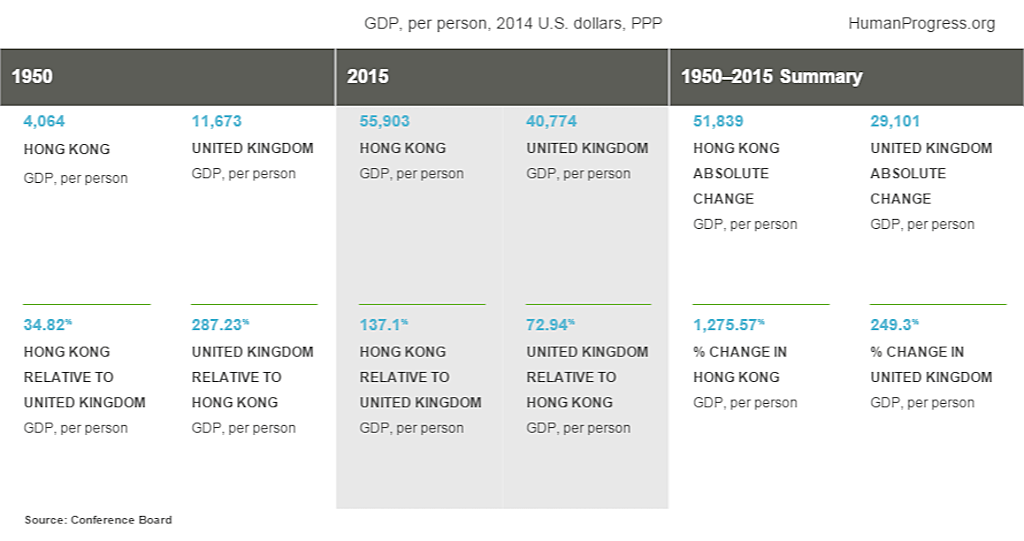The great 20th century journalist, novelist, and travel writer Martha Gellhorn (1908-1998) was no stranger to war, hunger, and disease—all of which she insisted on seeing with her own two eyes. In 1937, she was in Madrid and witnessed the dark denouement of the Spanish Civil War. In 1938, she was in Prague as millions of displaced Czechs, who were escaping from the Sudetenland after the Munich Agreement, crowded the train stations in search of food and shelter. In 1945, she accompanied the U.S. Seventh Army as it liberated the Dachau concentration camp from the homicidal National Socialists.
Gellhorn was one of the world’s first female war correspondents and feminists, as well as a force of nature. Her articles are invariably powerful and insightful. Yet the book I always return to is her 1978 memoir, Travels with Myself and Another. In 1941, Gellhorn accompanied her new husband, Ernest Hemingway, on a trip to a war-torn Hong Kong. The city was on the front line, with the imperialist Japanese slowly gaining ground against Chiang Kai-shek’s Nationalists. Landing by plane in Hong Kong, she penned the following impressions of a starving city:
The streets were full of pavement sleepers at night. The brothels were small square wood cubicles, lining a narrow passage; $2 a night per man per girl. The crimes were street vending without a license, and a fine no one could pay. These people were the real Hong Kong and this was the most cruel poverty, worse than any I had seen before. Worse still because of an air of eternity; life had always been like this, always would be. The sheer numbers, the density of bodies, horrified me. There was no space to breathe, these crushed millions were stifling each other.
When finally I visited a dank ill-lit basement factory where small children carved ivory balls within balls, a favorite tourist trinket, I could not bear to see any more. I had a mild fit of hysterics.
“They look about ten years old,” I shouted at the UC. “It takes three month to make one of those damned things, I think it’s eight balls within balls. They’ll be blind before they’re twenty. And that little girl with her tortoise. We’re all living on slave labor! The people are half starved! I want to get out, I can’t stand this place!”
UC [“unwilling companion” = Ernest Hemingway] considered me thoughtfully. “The trouble with you, M, is that you think everybody is exactly like you. What you can’t stand, they can’t stand. What’s hell for you has to be hell for them. How do you know what they feel about their lives? If it was as bad as you think they’d kill themselves instead of having more kids and setting of firecrackers.”
From agonizing over the lot of my Chinese fellow men, I fell into a state of hysterical disgust with hardly a pause. “WHY do they all have to spit so much?” I cried. “You can’t put your foot down without stepping on a big slimy glob! And everything stinks of sweat and good old night-soil!” The answer of course could be that spitting was due to endemic tuberculosis, and as for the stink, I had seen where and how the people lived. I knew I was being contemptible.

Shortly after Gellhorn and Hemingway left, the city surrendered to the Japanese. British rule returned after the surrender of the Japanese in August 1945. Two years later, a young Scottish civil servant named John Cowperthwaite arrived in the colony to oversee its economic development. Some 50 years later, I met Cowperthwaite in St Andrews, Scotland, where I was a student and he was enjoying his retirement. As he told me, “I came to Hong Kong and found the economy working just fine. So, I left it that way.”

Cowperthwaite talked to me about low taxes, a business-friendly regulatory environment, a lack of state subsidies, tariff-free trade relations with the rest of the world, and other policies he promoted during his tenure as colonial financial secretary. Of all the policies that we discussed, one stands out in my mind. I asked him to name the one reform that he was most proud of. “I abolished the collection of statistics,” he replied. Cowperthwaite believed that statistics are dangerous, because they enable social engineers of all stripes to justify state intervention in the economy.
At some point during our first conversation I managed to irk him by suggesting that he was chiefly known “for doing nothing.” In fact, he pointed out, keeping the British political busy-bodies from interfering in Hong Kong’s economic affairs took up a large portion of his time.

Today, Hong Kong is one of the most prosperous places on earth. While it has its share of problems—not least the Chinese government’s recent crackdown on freedom of speech—Hong Kong’s success has been astonishing. In 1950, an average citizen of the city earned 35 percent as much as an average citizen of Hong Kong’s colonial master, Great Britain. In 2015, an average citizen of Hong Kong earned 37 percent more than a typical Briton. The poverty that Gellhorn bemoaned is gone—thanks to economic freedom and peace.
This article first appeared in Reason.

